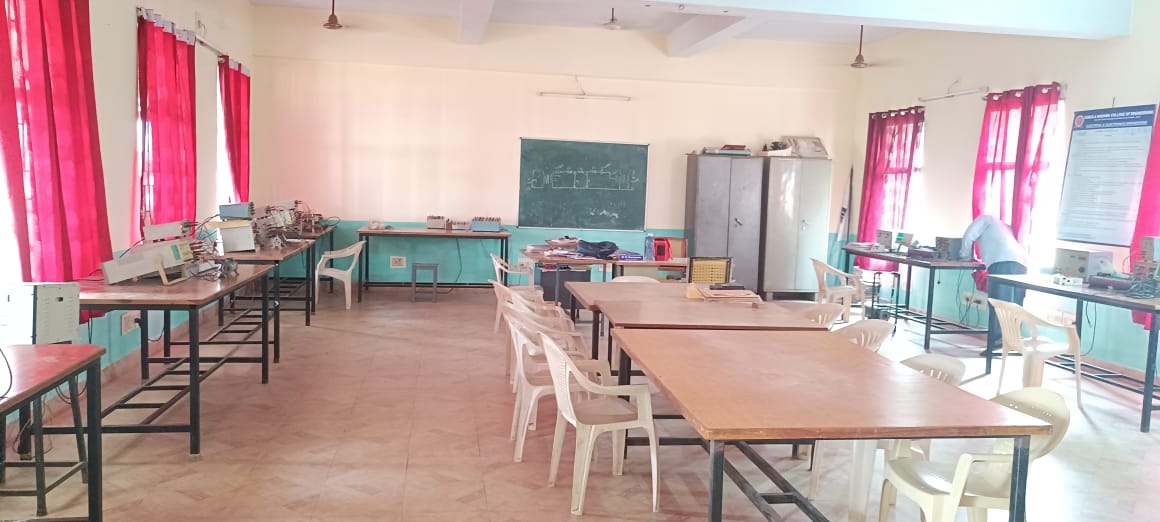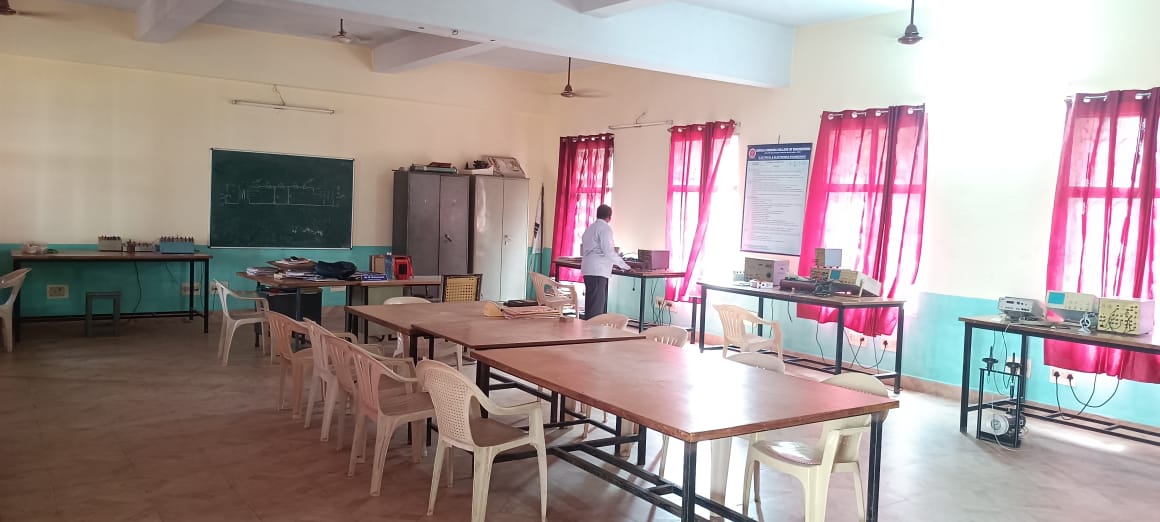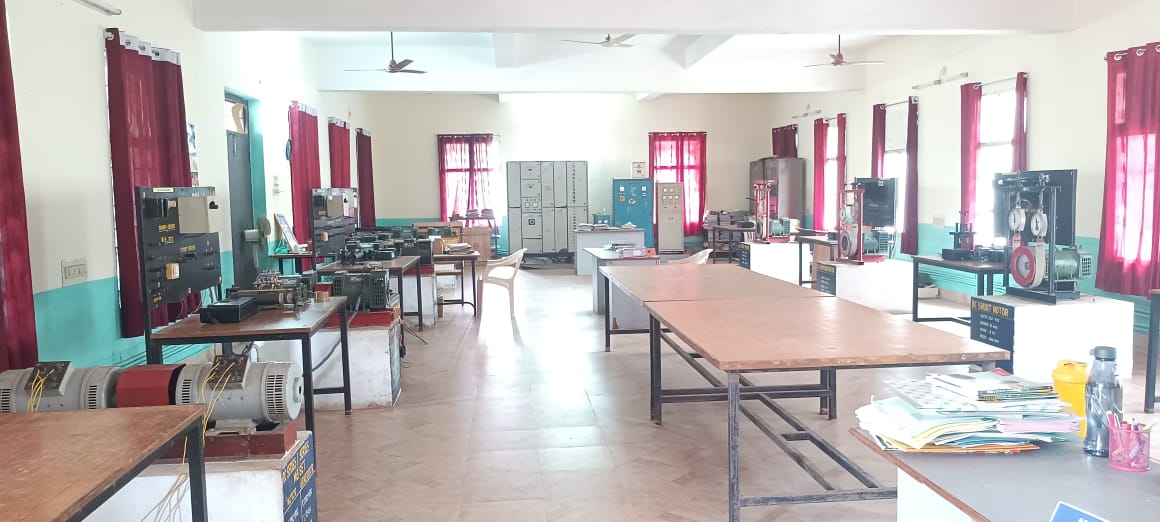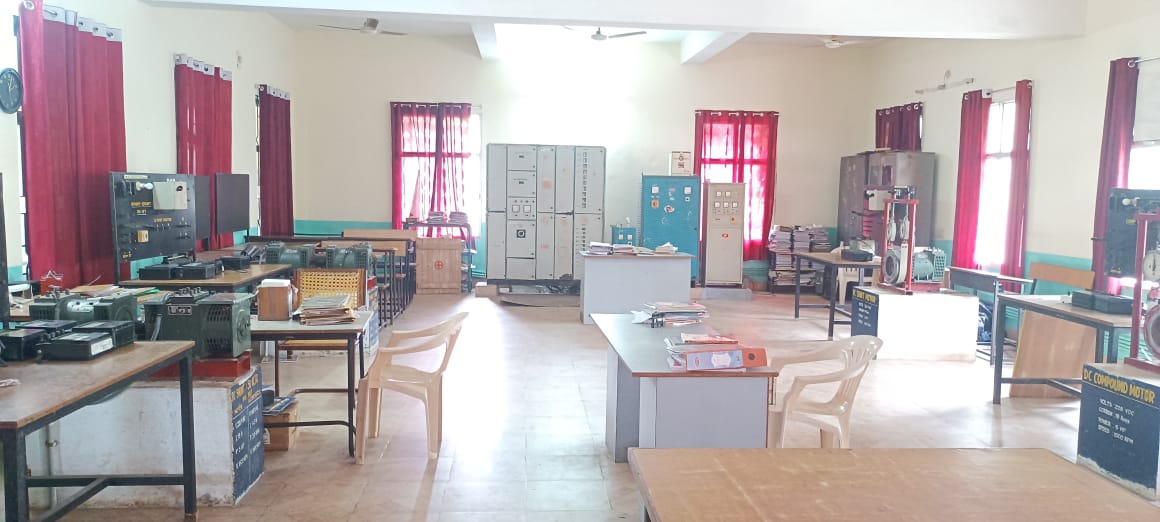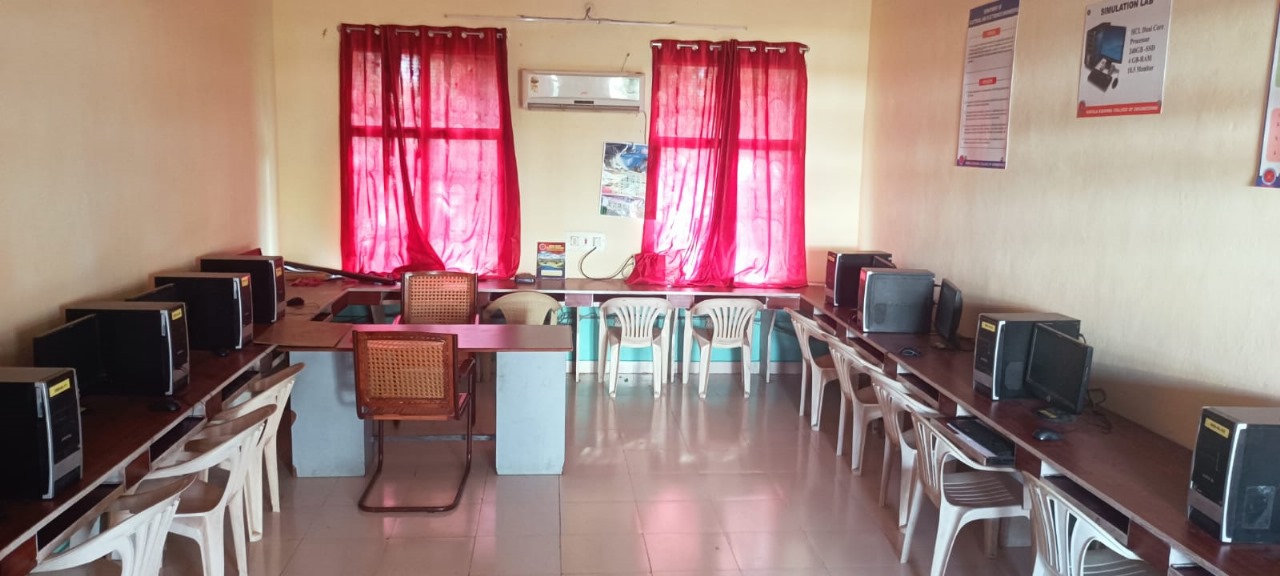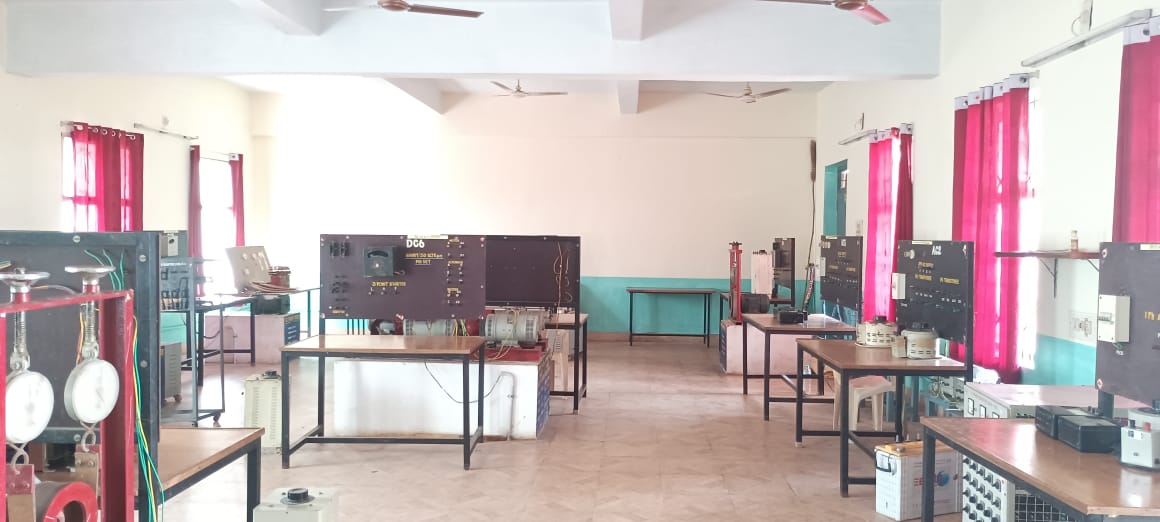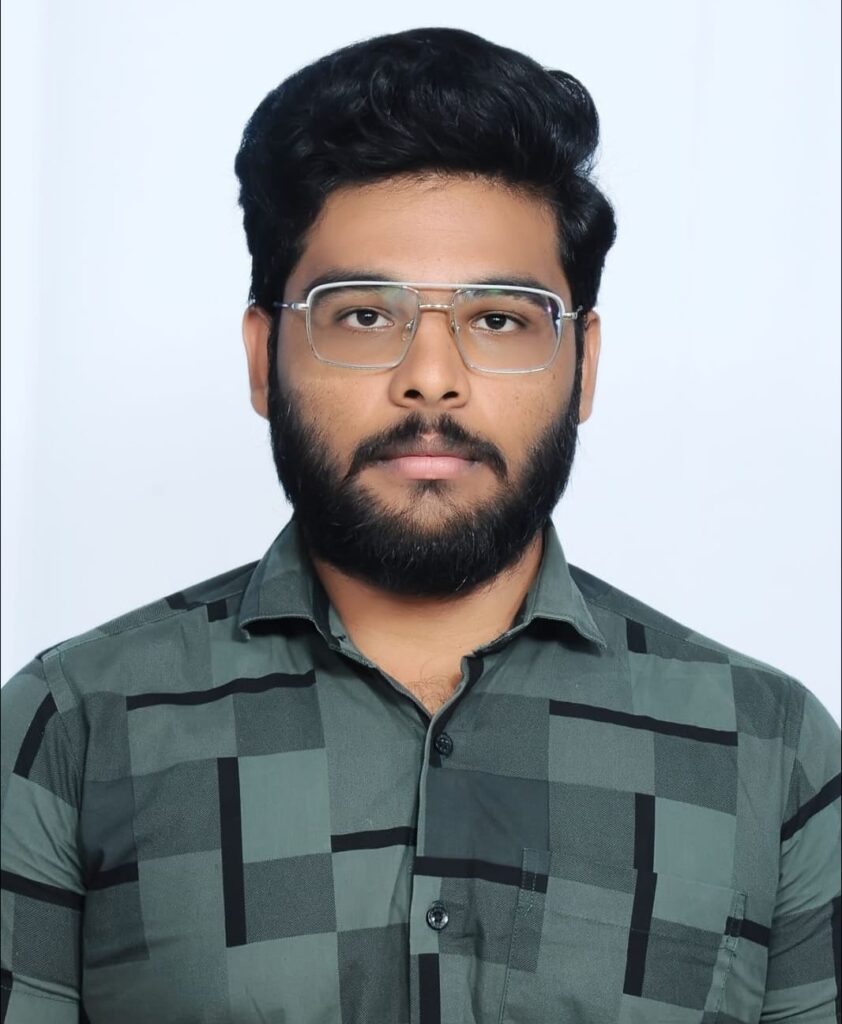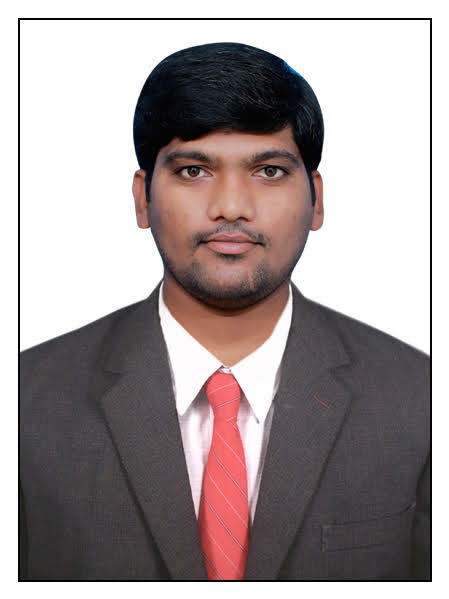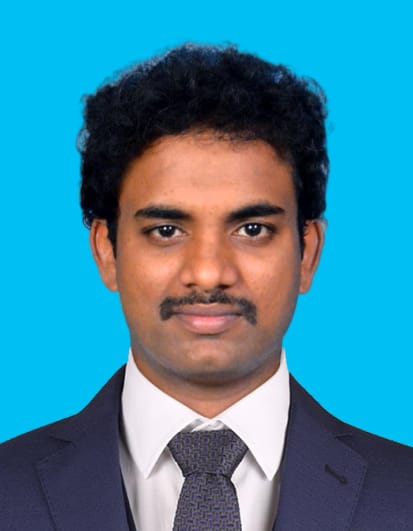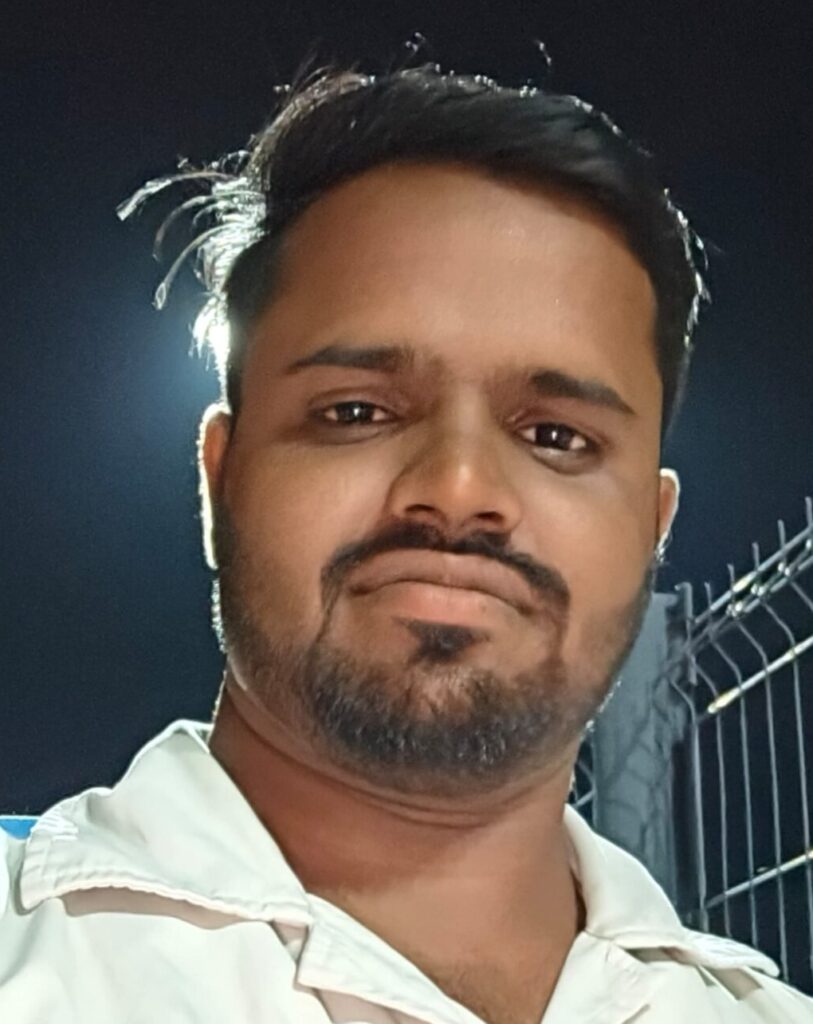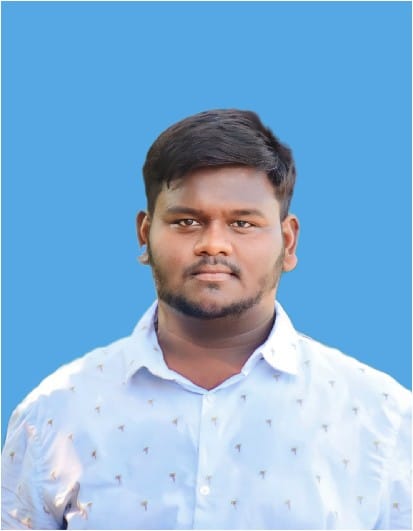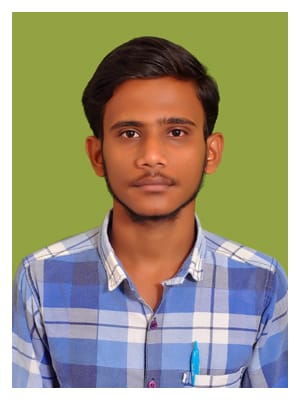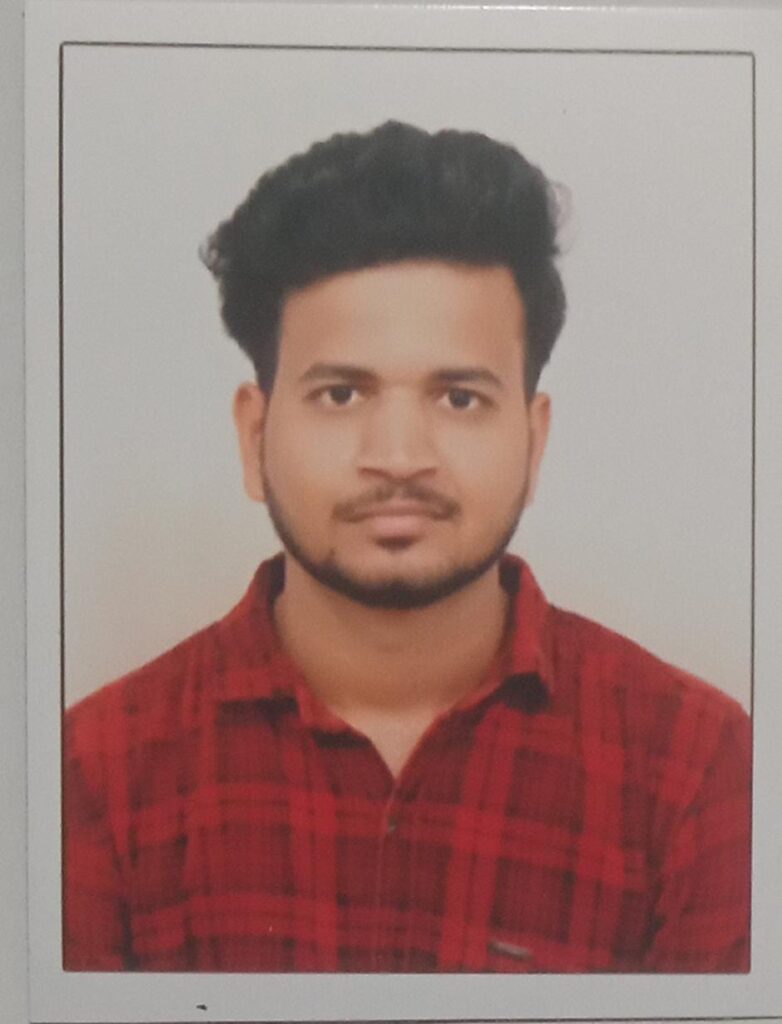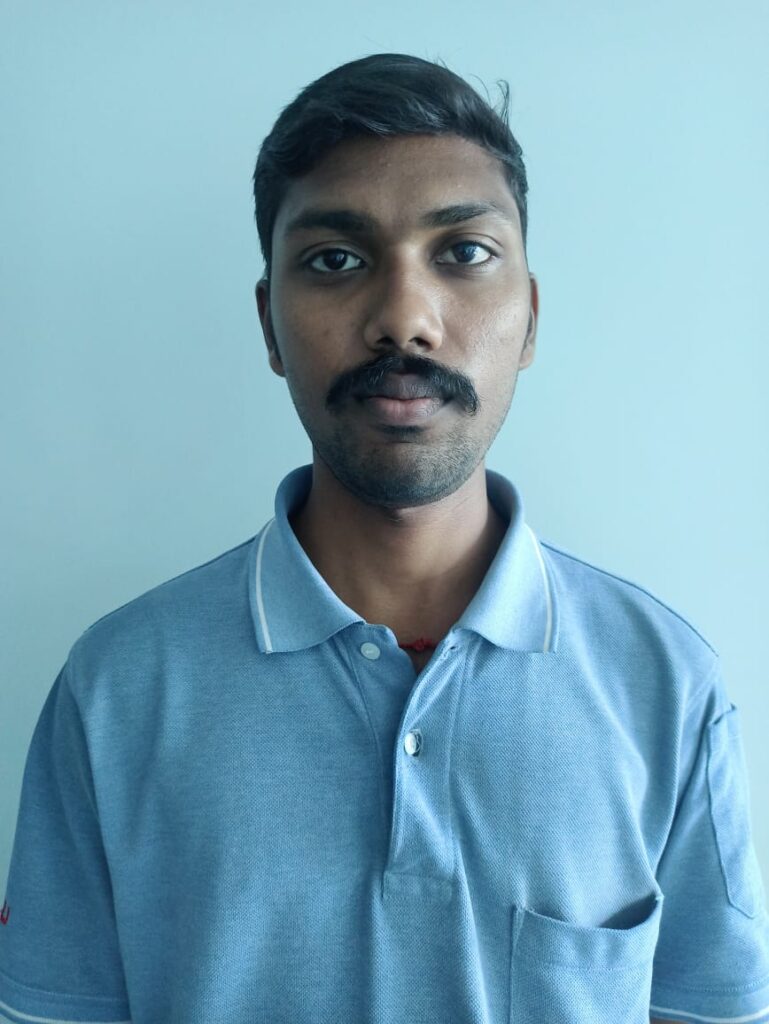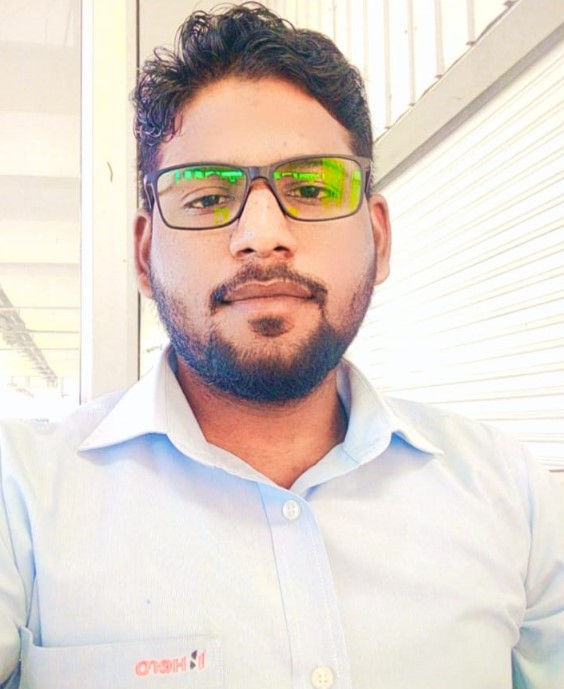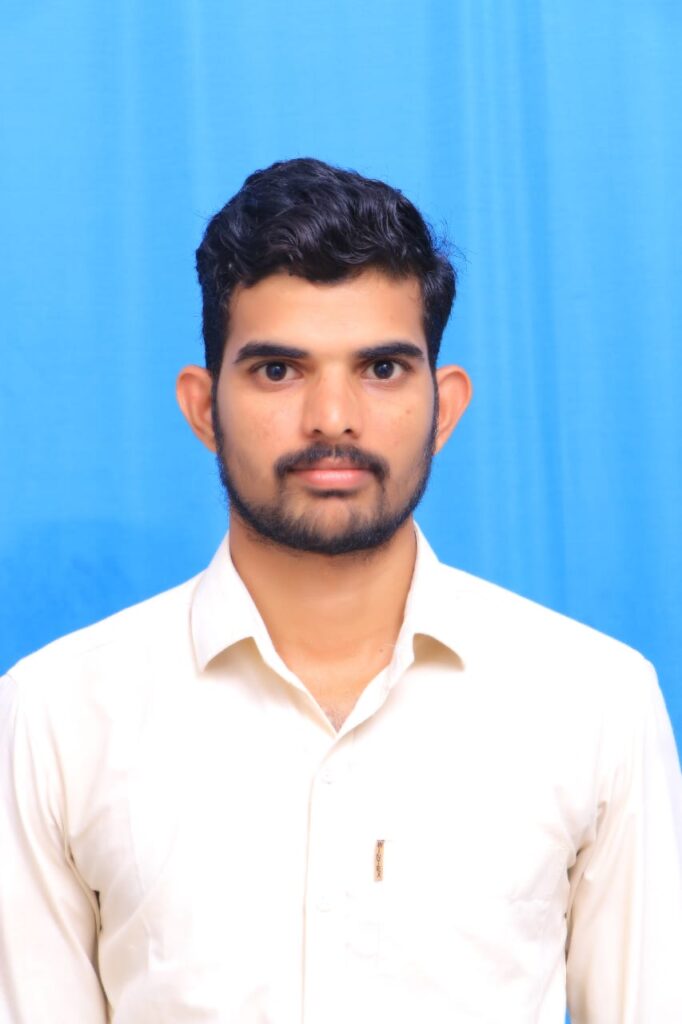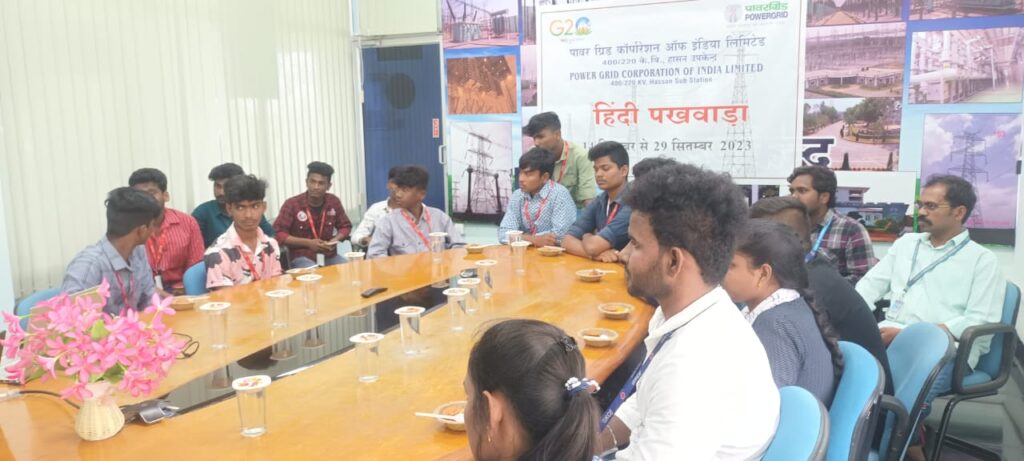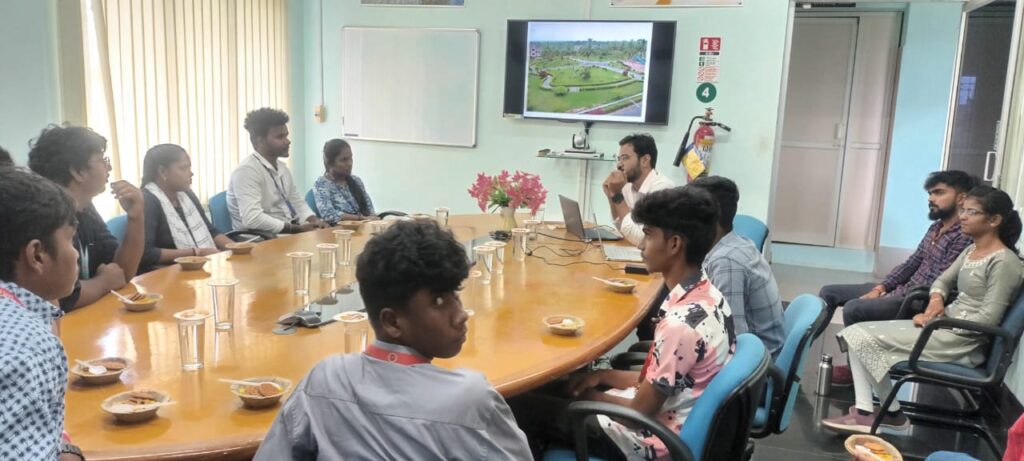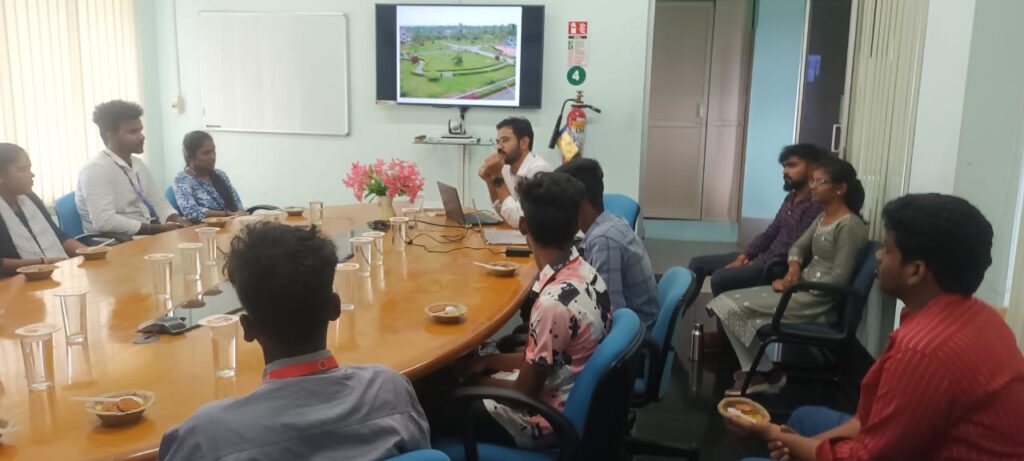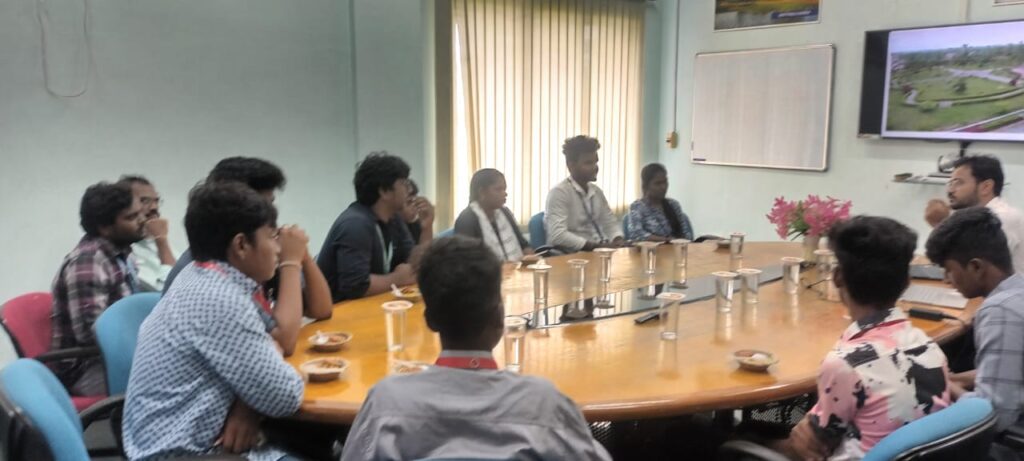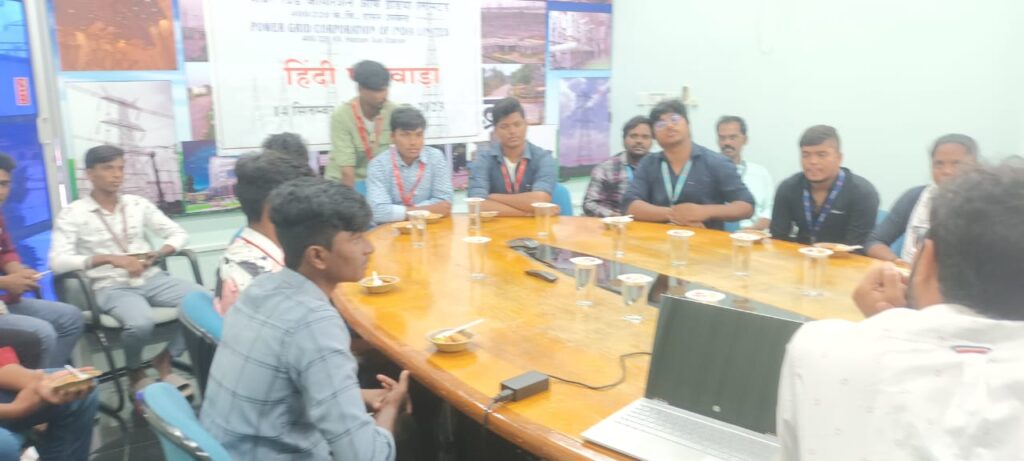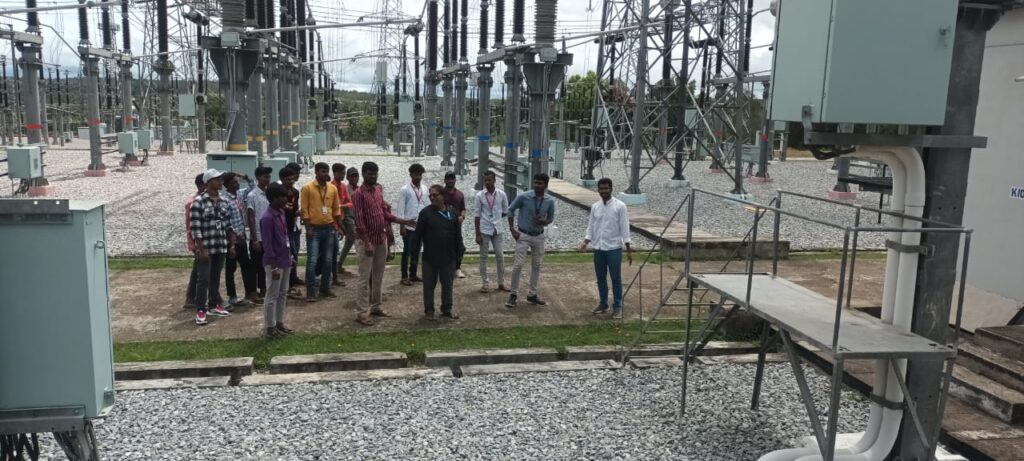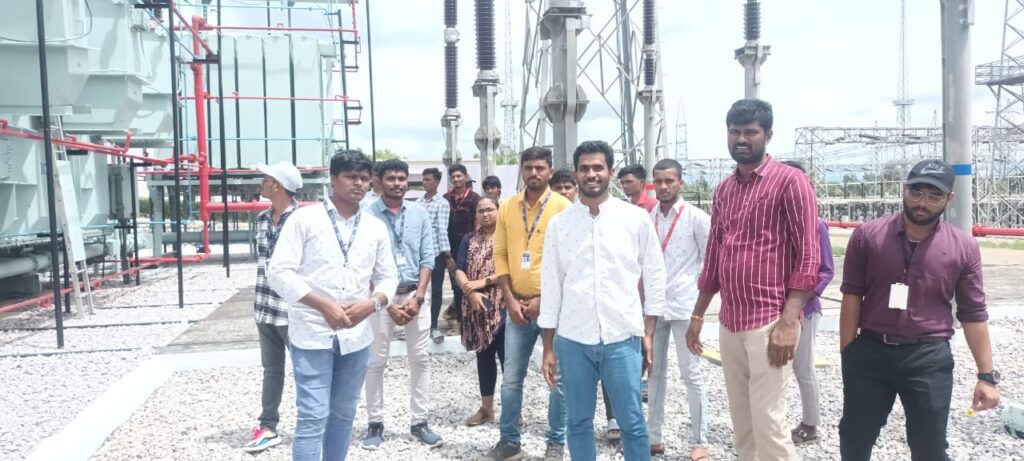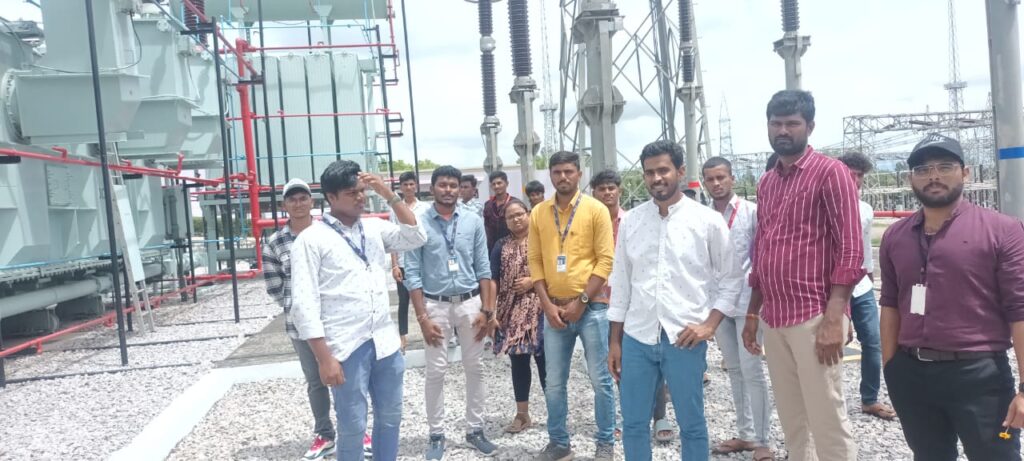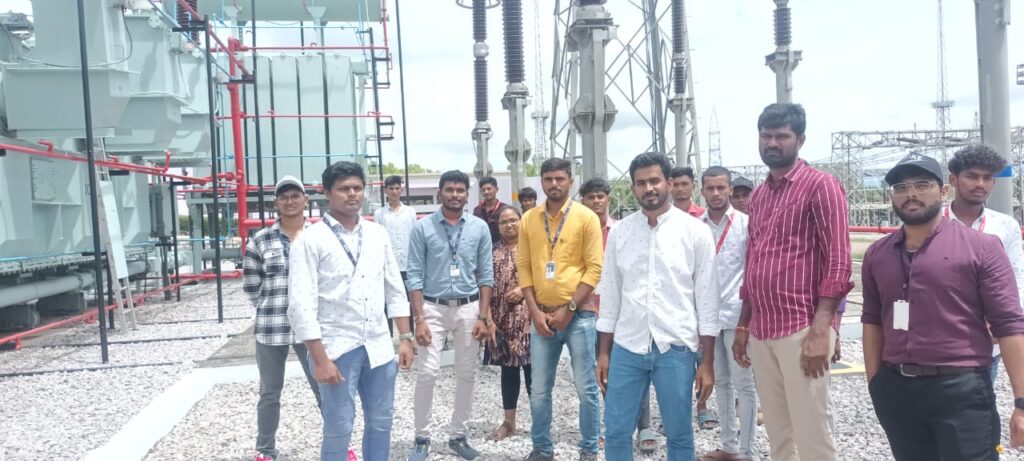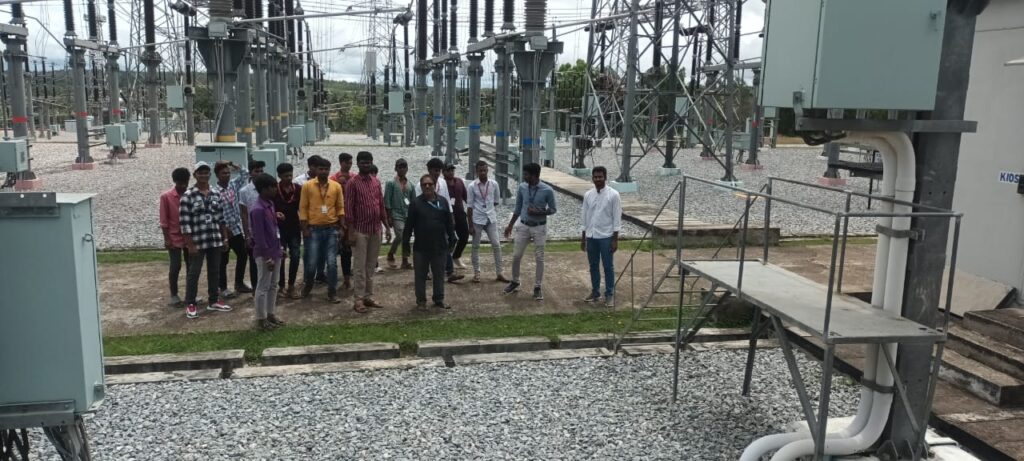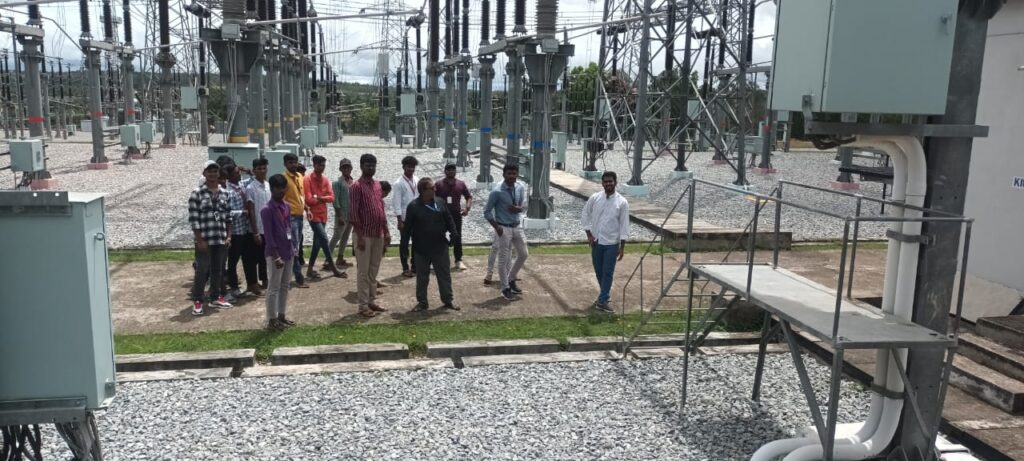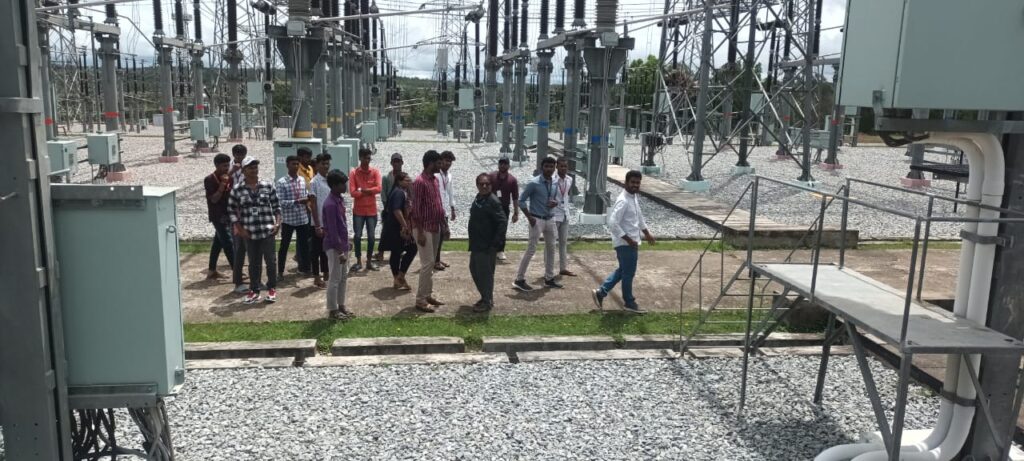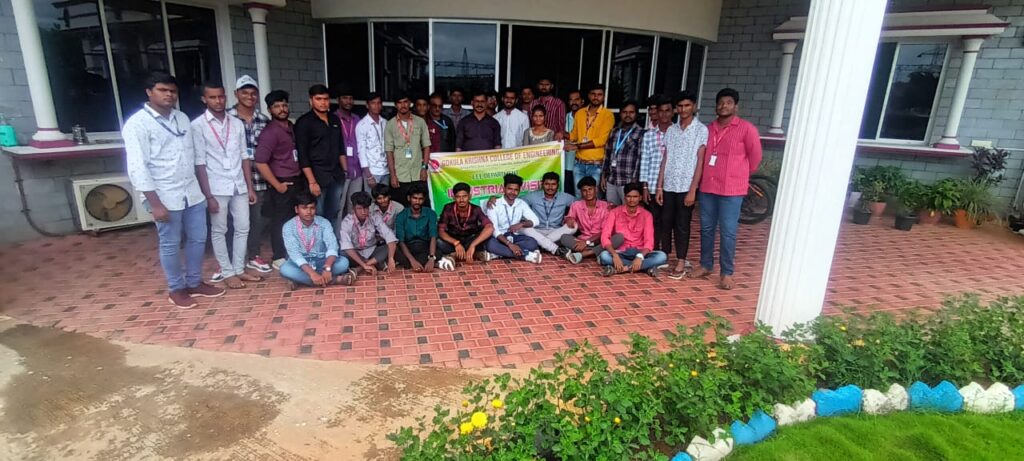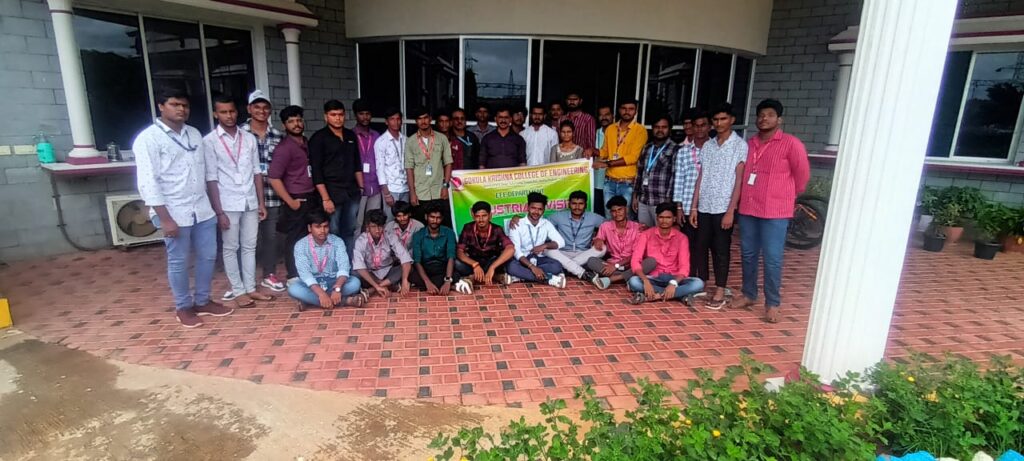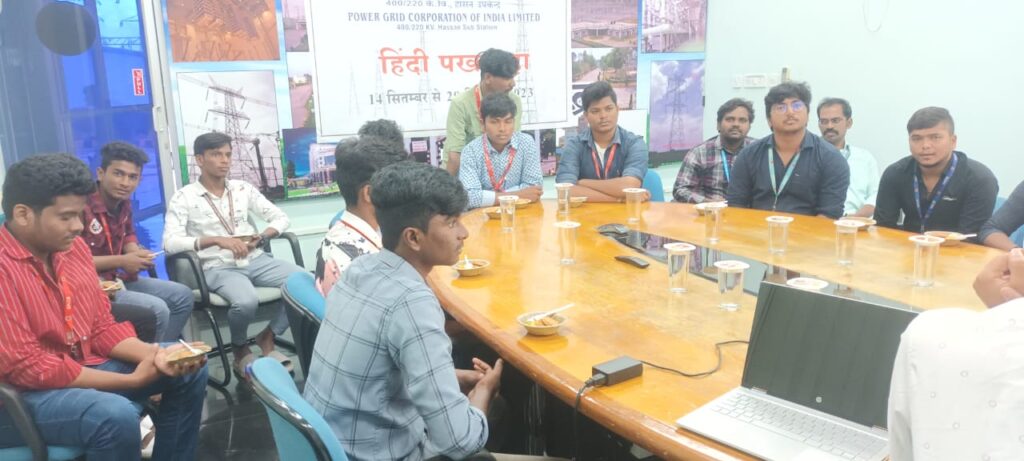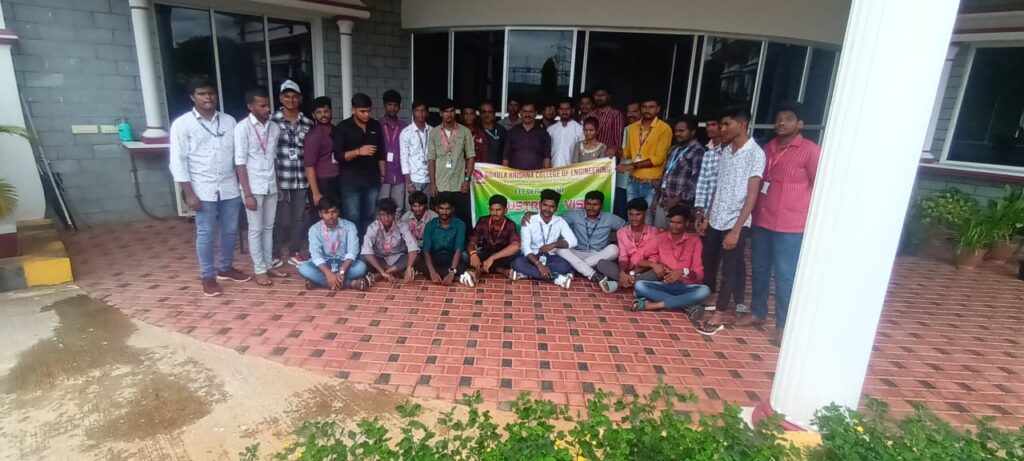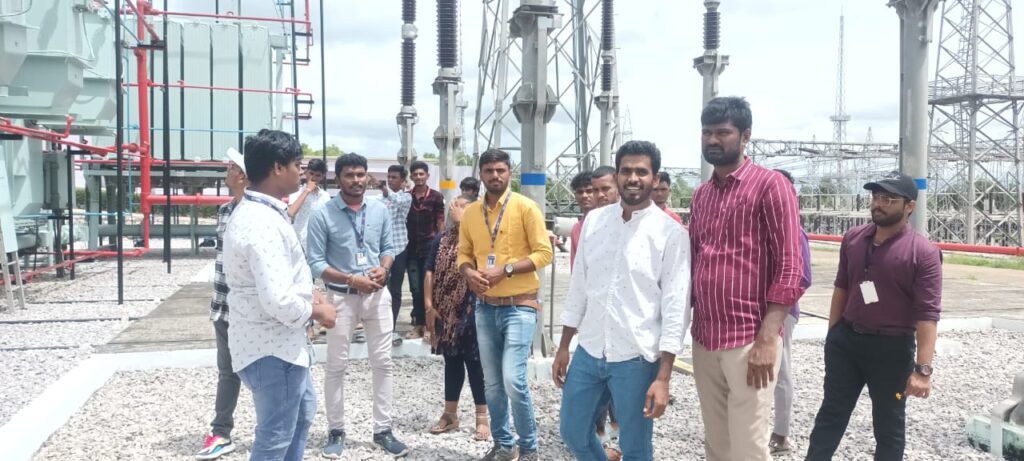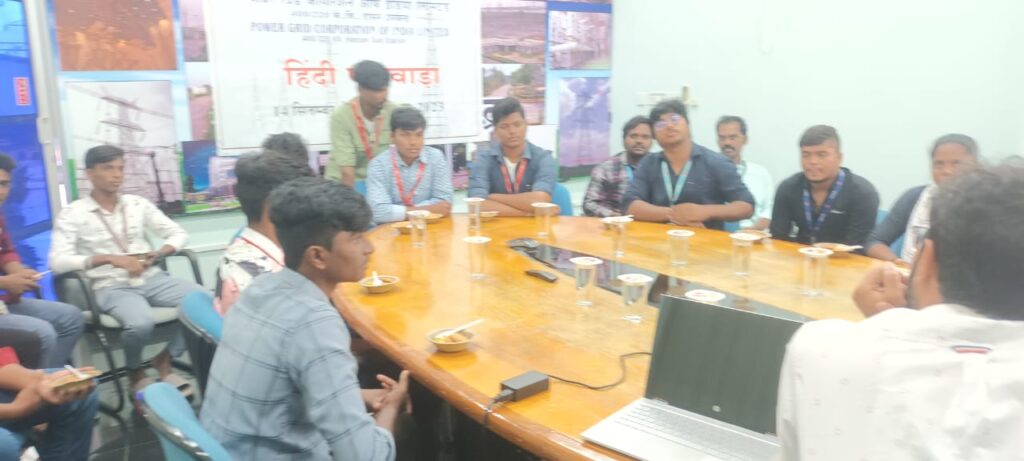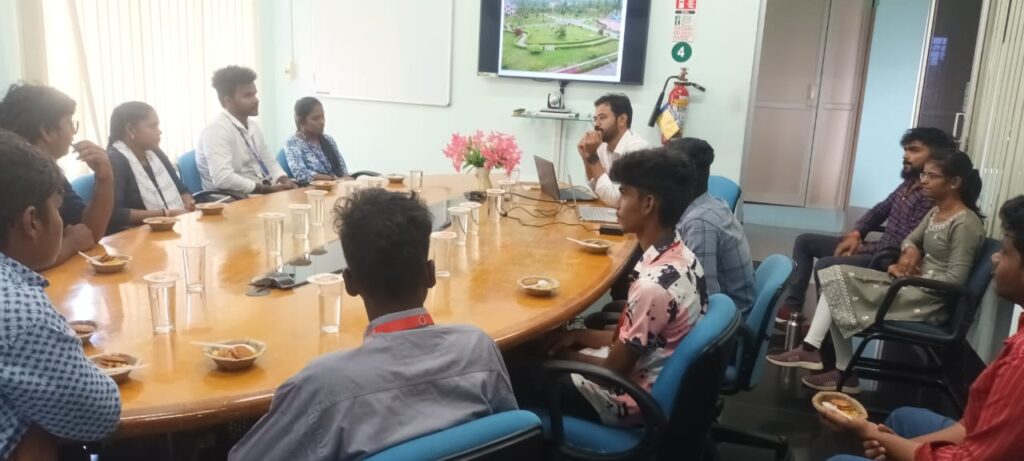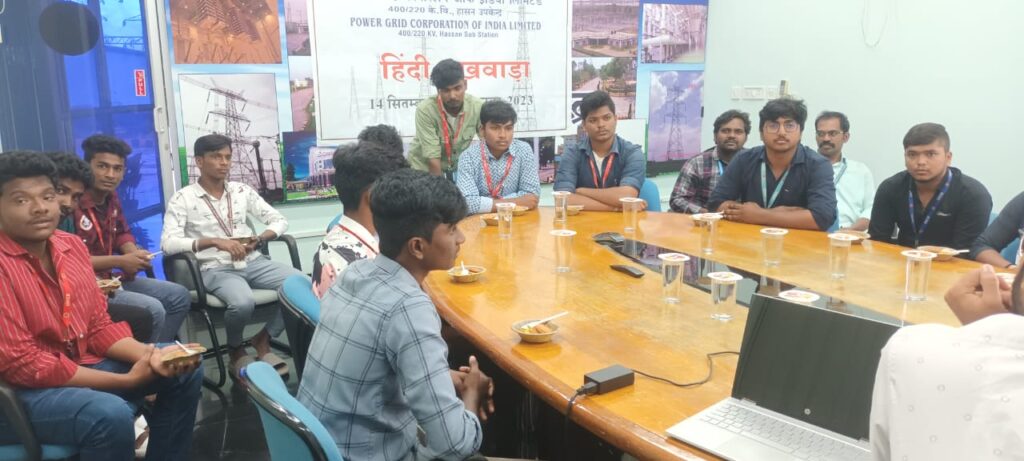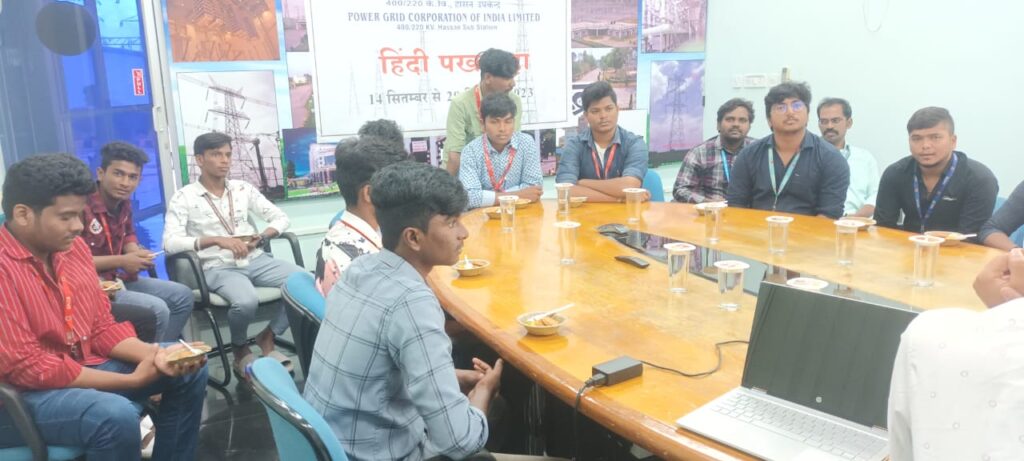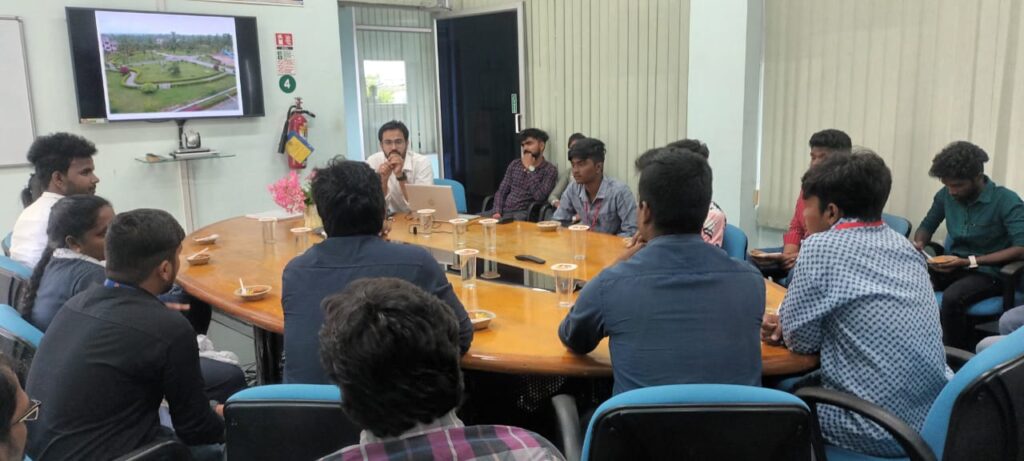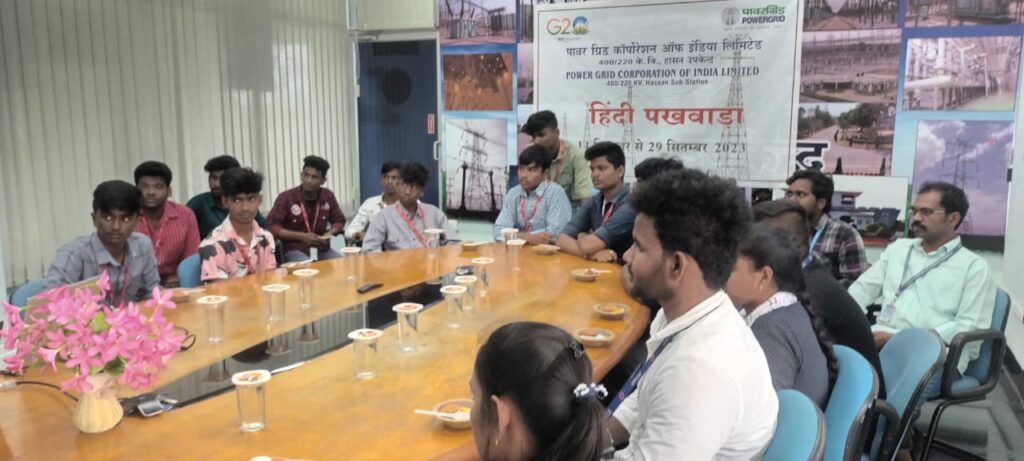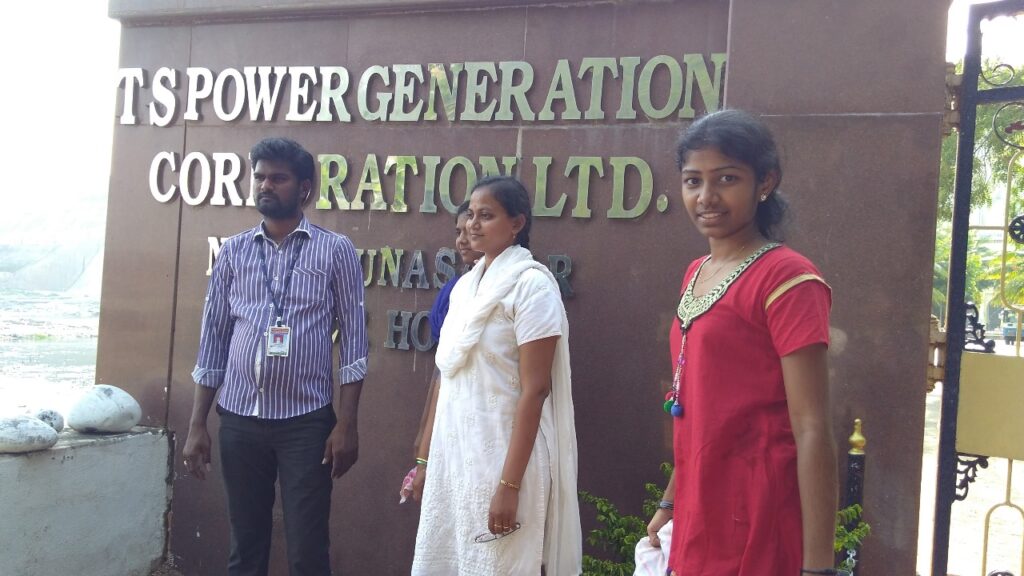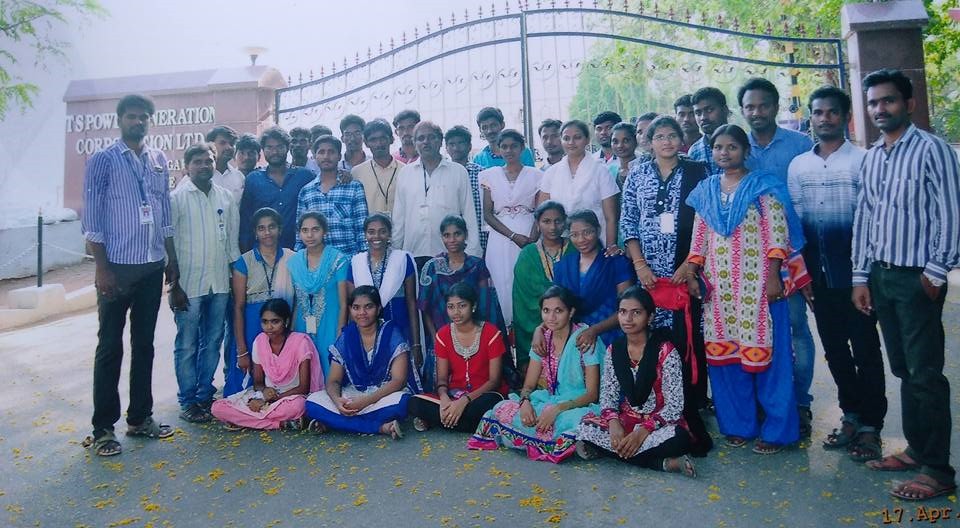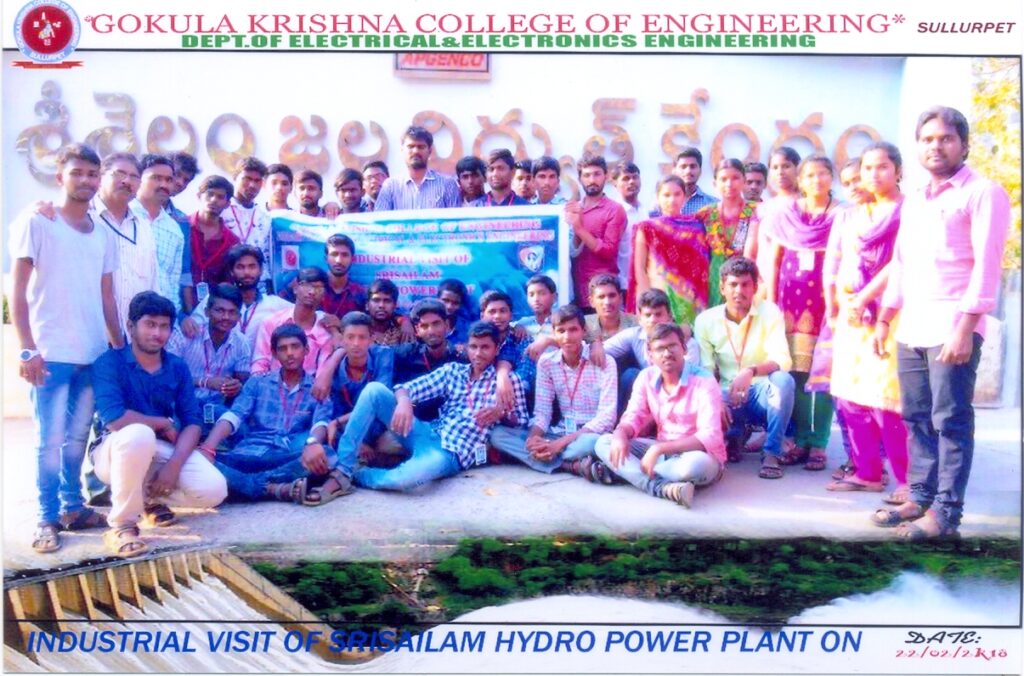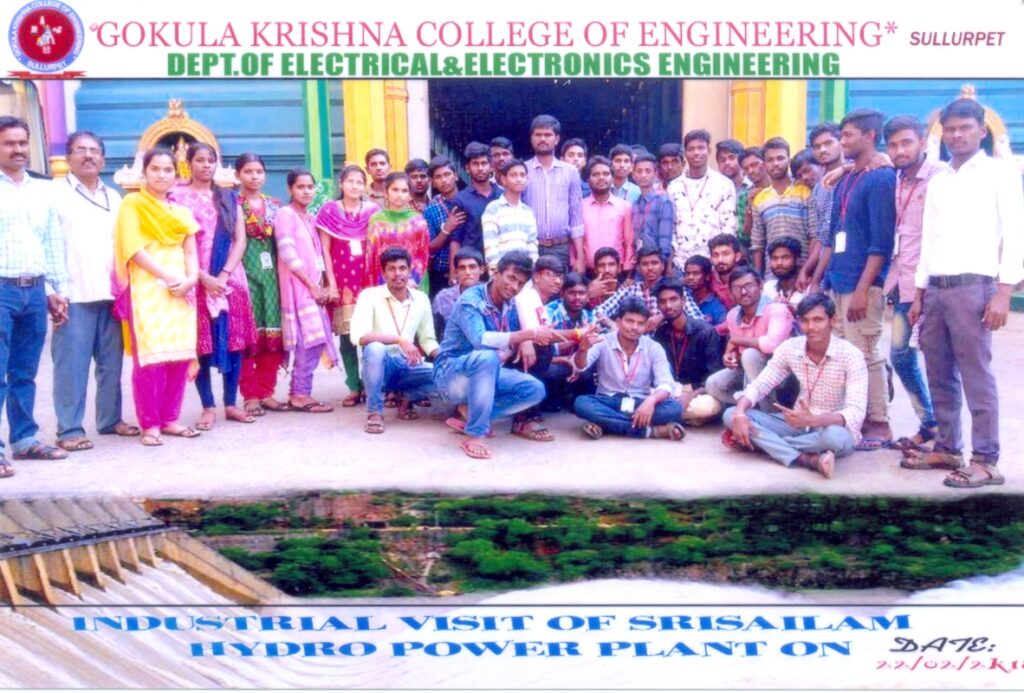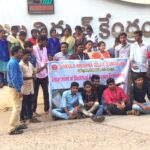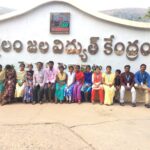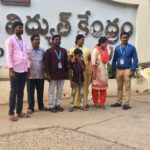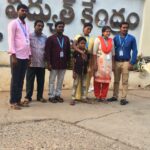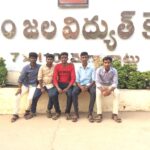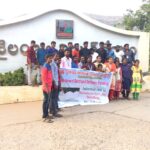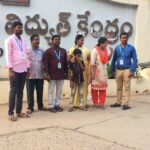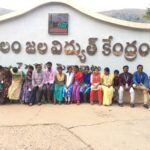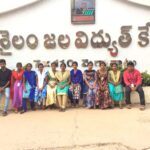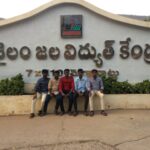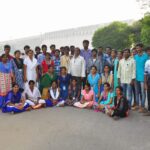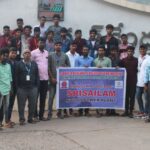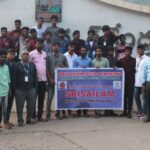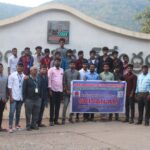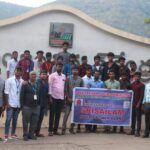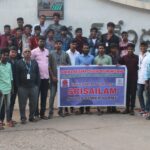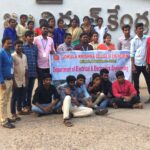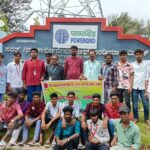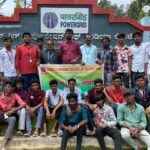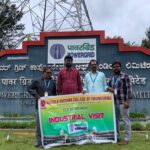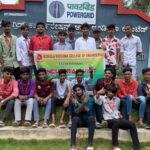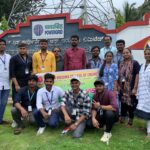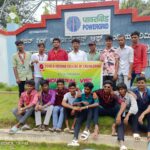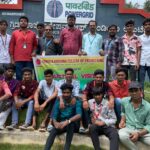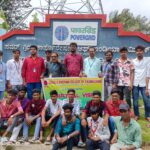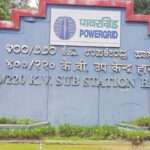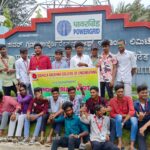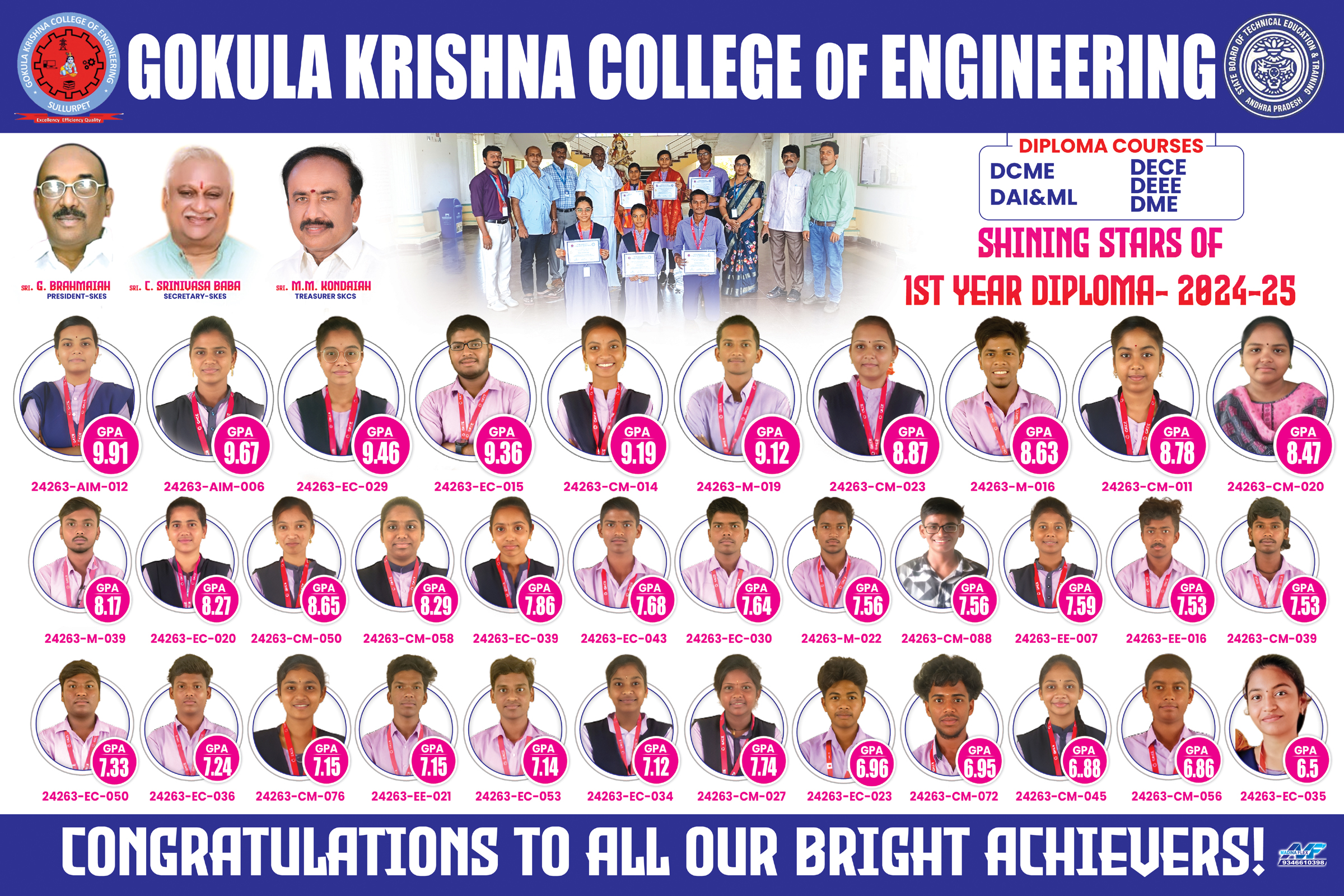Grievance complaint
B.TECH-EEE Department
Department of Electrical & Electronics Engineering (EEE)
The Department of Electrical and Electronics Engineering (EEE) at GOULA KRISHNA COLLEGE OF ENGINEERING offers a comprehensive education in electrical engineering, with a focus on both theoretical knowledge and practical applications.
The Department of EEE offers B. Tech. in Electrical & Electronics Engineering. The program provides excellent technical knowledge in the emerging areas of Electrical Engineering along with the required supporting knowledge of mathematics, science, computing, and engineering fundamentals. The program also includes in-depth study and analysis of Electrical Technology, Power Systems,Circuit Theory,Control Systems, Digital Signal Processing, Soft Computing, Soft Skills, Design Thinking& Innovationetc. The laboratory works develop the basic skills needed to formulate problems, to perform and design experimental projects.
The department also offers post graduate programme – M. Tech in Power Electronics. The objective of the programme is to introduce the students to various types of power electronic devices and control of electric power using these devices. The program is structured to cover the fundamentals and application areas through a set of core subjects and electives which the students can select based on their interests followed by a project work. In the project work, the students are encouraged to work on specific application areas involving design, simulation, fabrication and testing of any power electronics system having industrial applications.
The department has developed exclusive well-equipped laboratories for suitable instructions and hands-on experience as per AICTE norms.
Key Highlights:
Diverse Curriculum: Courses cover power systems, electronics, control systems, and more. Laboratory Experience: Students gain hands-on experience in our well-equipped laboratories. Project Work: We emphasize project-based learning, allowing students to work on innovative solutions to engineering problems. Career Support: Our department provides strong support for internships and job placements.
Some of the important labs in the department are:
Electrical Machines Lab.
Control Systems & Simulation Lab.
Electrical Measurements Lab.
Power Electronics& Simulation lab.
Electrical Circuits Simulation Lab.
The simulation of electrical systems lab has sophisticated software on power systems, power electronics and control systems based on mat lab and Simulink.
The department library houses large volumes of various titles for both the faculty and students. Students are encouraged to actively involve in understanding concepts through hands-on, small-group and individual explorations, using real-time examples from the industry.
Students are assigned time bound group assignments and encouraged to learn the intricacies of Electrical and Electronics Engineering
VISION OF THE DEPARTMENT
To lead electrical and electronics engineering education and training by producing globally competent graduates who excel in their chosen careers and are successfully involved in innovative research and entrepreneurship with a strong commitment towards societal development.
MISSION OF THE DEPARTMENT
M1) To offer undergraduate, and postgraduate, in EEE through full-time delivery modes.
M2) To provide state-of-the-art resources that contribute to the achievement of excellence in teaching-learning activities
M3) To organise faculty development programmes in need-based areas to enhance their capability in teaching, publishing papers in peer-reviewed journals, filing patents and for their overall career enhancement.
M4) To provide special learning opportunities and a conducive environment for students to enhance their skills in technical, co-curricular activities, extra-curricular activities, entrepreneurship, soft skills and personality traits.
M5) To enhance the training, and consultancy services to bridge the gap between industry and academics.
PROGRAMME EDUCATIONAL OBJECTIVES (PEOS)
PEO 1 | To provide a good foundation in mathematics and sciences, management engineering fundamentals to make them globally competent and to excel in their chosen profession |
PEO 2 | To inculcate ethical values and aptitude for lifelong learning that enables them to stay abreast with the latest technology needed for a successful professional career. |
PEO 3 | Students will acquire, use and develop skills required for effective professional and societal practices and leadership quality. |
PROGRAMME OUTCOMES (POs)
PO 1
| Apply the knowledge of mathematics, science, engineering fundamentals, and an engineering specialization to the solution of complex engineering problems. |
PO 2
| Identify, formulate, review research literature, and analyse complex engineering problems reaching substantiated conclusions using first principles of mathematics, natural sciences, and engineering sciences. |
PO 3
| Design solutions for complex engineering problems and design system components or processes that meet the specified needs with appropriate consideration for the public health and safety, and the cultural, societal, and environmental considerations. |
PO 4
| Use research-based knowledge and research methods including design of experiments, analysis and interpretation of data, and synthesis of the information to provide valid conclusions. |
PO 5
| Create, select, and apply appropriate techniques, resources, and modern engineering and IT tools including prediction and modelling to complex engineering activities with an understanding of the limitations |
PO 6
| Apply reasoning informed by the contextual knowledge to assess societal, health, safety, legal and cultural issues and the consequent responsibilities relevant to the professional engineering practice. |
PO 7
| Understand the impact of the professional engineering solutions in societal and environmental contexts, and demonstrate the knowledge of, and need for sustainable development. |
PO 8
| Apply ethical principles and commit to professional ethics and responsibilities and norms of the engineering practice. |
PO 9
| Function effectively as an individual, and as a member or leader in diverse teams, and in multidisciplinary settings. |
PO 10
| Communicate effectively on complex engineering activities with the engineering community and with society at large, such as, being able to comprehend and write effective reports and design documentation, make effective presentations, and give and receive clear instructions. |
PO 11
| Demonstrate knowledge and understanding of the engineering and management principles and apply these to one’s own work, as a member and leader in a team, to manage projects and in multidisciplinary environments. |
PO 12
| Recognize the need for and have the preparation and ability to engage in independent and life-long learning in the broadest context of technological change. |
PROGRAMME SPECIFIC OUTCOMES (PSOs)
PSO 1 | Ability to apply the knowledge of Mathematics, science, engineering principles for modelling, analyzing and solving electrical and electronics engineering problems |
PSO 2 | Apply the appropriate techniques and modern engineering hardware and software tools in electrical engineering to engage life-long learning and to successfully adapt in multi-disciplinary environments. |
PSO 3 | Aware of the impact of professional engineering solutions in societal, environmental context, professional ethics and be able to communicate effectively |
Dr.S.Prakash
Professor & HOD
Electrical and Electronics Engineering,
Gokula Krishna College of Engineering, Sullurupet.
Email : eeehod@gkce.edu.in Ph.no: 80749 21883
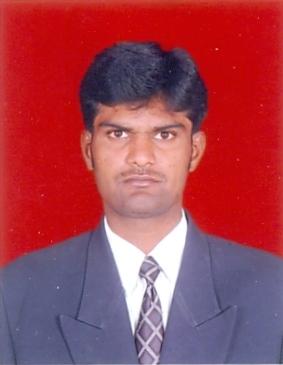
Dr.S.Prakash is the Professor and Head of the Department of Electrical and Electronics Engineering, Gokula Krishna College of Engineering, Sullurupet. He was awarded his Ph.D. entitled “Investigations on Transmission Expansion Planningin Deregulated Power System” from Vel Tech Rangarajan Dr.Sagunthala R&DInstitute of Science and Technology,Chennai. He completed Master of Technology from Jawaharlal Nehru Technological University Anantapur, .He also completed a Bachelor of Technology from Jawaharlal Nehru TechnologicalUniversity Hyderabad. He has participated in many seminars and presented his papers on various topics. More than 19 Research Articles were published in various reputed International Journals. He has 13 years of teaching experience and he has one yearof industrial experience. Areas of his research interest are Power Systems, Electrical Power Engineering, HVDC Transmission etc. He has played a lot of roles as an academician, coordinator for quality standards, advisor for student associations, and social worker on societal needs.
FACULTY
| S.No | AICTE Faculty Unique ID | Name of the Faculty | Qualification | ||
| 1 | 1-2060510381 | Dr. | PRAKASH | SAMANA | M.Tech,Ph.D |
| 2 | 1-4759598279 | Mr. | RAVI | TATAMSETTY | M.Tech |
| 3 | 1-2106223462 | Mr. | SREENIVASULU | MAVUDURU | M.Tech(Ph.D) |
| 4 | 1-2908126127 | Mr. | SIVAIAH | BANDILI | M.Tech |
| 5 | 1-3602327460 | Mr. | HUMAYUN | SHEIK | M.Tech |
| 6 | 1-11341289628 | Mr. | SRINIVASULU | GUMMADI | M.Tech |
| 7 | 1-12238564378 | Mr. | MUNUSWMI | MADANAMBETI | M.Tech |
| 8 | 1-9584129368 | Mr. | RAJASEKHAR | VATAMBETI | M.Tech (Ph.D) |
| 9 | 1-7468035210 | Mr. | CHAITHANYAKUMAR | PANAGAL | M.Tech |
| 10 | 1-7468035203 | Mrs. | REKHA | KILIVETI | M.Tech |
| 11 | 1-7469399988 | Mrs. | POOJA | CHOYAL | M.Tech |
| 12 | 1-7469400065 | Mrs. | AMARAVATHI | THOLUCHURU | M.Tech |
Department of Electrical & Electronics Engineering (EEE) Placements details
I-YEAR EEE
II-YEAR EEE
II EEE I Semester
II EEE II Semester
III-YEAR EEE
IV-YEAR EEE
IV EEE I Semester
STUDENTS ACHIEVEMENTS
Gokula Krishna College of Engineering
Behind RTC Depot., Sullurpet, Tirupati District, AndraPradesh-524121
08623 – 294255
views
Site views






 Users Today : 37
Users Today : 37 Views Today : 90
Views Today : 90 Who's Online : 2
Who's Online : 2





